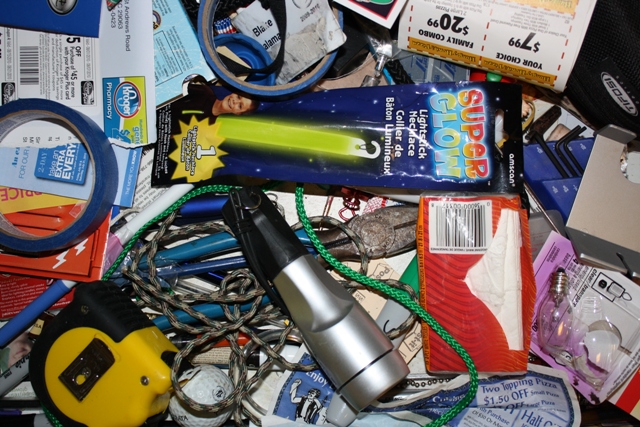Three Keys to streamlining your pitch
If you’re like most people, you probably have a junk drawer. If we’re not careful, our junk drawers, much like our lives, can undergo a natural sort of entropy. Entropy is defined as “lack of order or predictability; gradual decline into disorder.”
If you’ve ever tried to clean your junk drawer, you’ve witnessed this phenomenon: You create order systems and categories—and in less than six months, you’ve accumulated notepads full of shopping lists, broken door handles, and five packets of taco sauce.
Humans tend to add on, rather than subtract. We pile items on our to-do lists, we gather junk, and we add to our presentations – sales to investor presentations. We hear some new statistics from Rita or a new credibility statement from Natalie and so we add them to our presentation. Maybe Paul has killer opening power statements so we try it on for size.
The problem with this practice is that our presentations become too long. We lose the tension and, worst of all, we start to sound inauthentic.
One’s junk drawer, like one’s ‘routine’ presentation, undergoes a natural sort of entropy.
Every so often, we must take time out and ask ourselves the following questions:
- Do I really need to hold on to this anecdote, statistic, e-mail, story or template anymore? Does it speak to today’s customer, to my specific customer? Does it further the sale or increase investor interest?
- Are my communications filled with clutter? Am I direct? Do I use plain language, or do I fill my messages with industry jargon?
- Must I articulate multiple sets of facts, features and ideas even though they’re identical? Are my responses too similar, or do I really listen and only share those benefits and solutions that tie into my particular customers’ needs?
There’s a natural tendency to create clutter in our presentations.
We add a little of Tom, a sprinkle of Sally and that ingredient from top closer Tony. Pretty soon we talk too much and don’t sound like ourselves.
It’s the human condition to fall prey to old habits. We must consciously look at areas of our lives that need cleaning up, and then methodically and proactively do so. And then keep doing it.
Every so often, the universe has a way of doing this for us. We unexpectedly loose a friend, a beloved pet, a business deal, or an entire global economy collapses.
We must adjust to new circumstances. My personal experience is that when I’ve lost something that I thought was irreplaceable it’s replaced with something much better. The key to change, is having faith that when we get rid of the junk, something or someone even more magical will take its place.
Image credit: CC by Cathy Calamas



